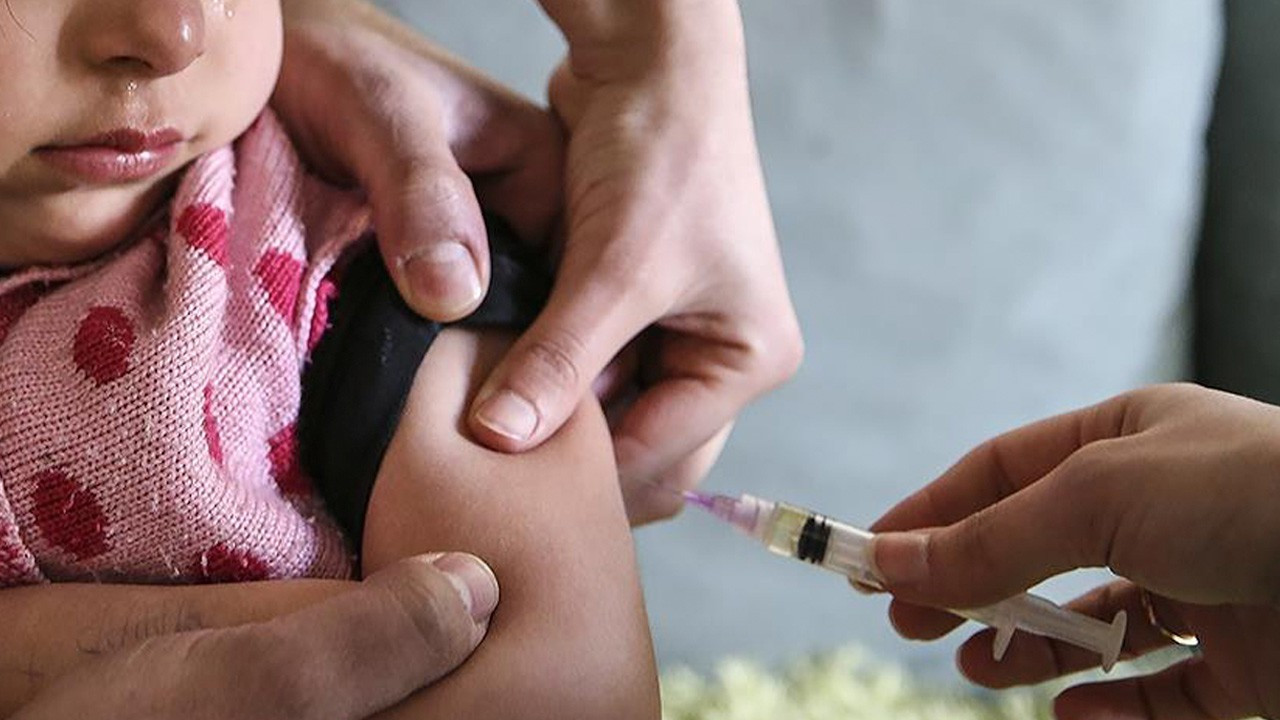Health officials raise concern over spike in Istanbul measles cases
Istanbul Medical Chamber (İTO) members have released a statement regarding the recent spike in measles cases in the megacity and drawn attention to the children who have died due to the outbreak.
Duvar English
Istanbul Medical Chamber (İTO) members on June 13 released a statement regarding the increasing number of measles cases and stated that Turkey ranks third in the number of measles cases in Europe with 457 cases after Russia and Tajikistan.
📢İstanbul’da kızamık hastalığındaki artış endişe verici, kaybedilen çocuklar var, bu seyir en kısa zamanda önlenmelidir!
— İstanbul Tabip Odası (@istabip) June 13, 2023
👇👇https://t.co/0PPK40748b pic.twitter.com/esRPM2dBmz
In response to the alarming rise in the number of measles-related hospital admissions and child deaths in Istanbul, the İTO board members said, "We are gathered here today to draw attention to the bad course of measles because we know that there is an alarming increase in measles cases in Istanbul and unfortunately there are children who have died due to the measles outbreak.”
The chamber members said that they cannot tolerate losing children to measles, which is a preventable disease thanks to the vaccine that has been used for nearly half a century.
They pointed out that even though the World Health Organization (WHO) initially set the measles elimination target for the European Region, including our country, to be achieved by 2010, and later in 2015 when it was not met; the targets remain unaccomplished until today. Turkey is also significantly distant from reaching this objective, they added.
The İTO members also criticized the Turkish government for not sharing accurate data regarding the outbreak as they did during the COVID-19 pandemic even though the doctors in the field reported a serious hike in the cases.
“In order to stop the circulation of the measles virus, 92-95 percent of the population must be vaccinated. In the 2021 data shared by the Health Ministry with the WHO, we see that this rate has not been reached in many cities of our country, including Istanbul,” they added.
While measles cases in Turkey have decreased considerably since 1970 with the first application of vaccines, experts attribute the increase in recent years to rising anti-vaccination sentiment and irregular migration. Before the COVID-19 pandemic, the vaccination process was conducted in the schools and the online education has disrupted the vaccination, increasing the number of unvaccinated children.

 Shortage of chickenpox vaccine in Turkey raises public health concernsHealth
Shortage of chickenpox vaccine in Turkey raises public health concernsHealth Number of unvaccinated children in Turkey surges in recent yearsHealth
Number of unvaccinated children in Turkey surges in recent yearsHealth Turkey experienced surge of measles in 2019: WHODomestic
Turkey experienced surge of measles in 2019: WHODomestic